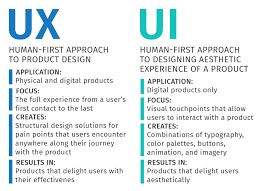The Power of Direct Digital Marketing
Direct digital marketing is a targeted form of advertising that allows businesses to reach their audience with personalized messages through various digital channels. This type of marketing enables companies to connect directly with their customers, delivering tailored content based on user behavior, preferences, and demographics.
One of the key advantages of direct digital marketing is its ability to track and measure campaign performance in real-time. By analyzing data such as open rates, click-through rates, and conversion rates, businesses can gain valuable insights into the effectiveness of their marketing efforts and make data-driven decisions to optimize future campaigns.
Through email marketing, social media advertising, search engine optimization (SEO), and other digital channels, businesses can engage with their target audience on a more personal level. By delivering relevant content at the right time, direct digital marketing helps build brand loyalty and drive customer engagement.
Furthermore, direct digital marketing allows for greater segmentation and targeting capabilities. Businesses can create highly specific customer profiles based on factors such as location, interests, purchase history, and more. This targeted approach ensures that messages resonate with the intended audience, leading to higher conversion rates and improved ROI.
In today’s fast-paced digital landscape, direct digital marketing has become an essential tool for businesses looking to stand out in a crowded marketplace. By leveraging the power of data-driven insights and personalized messaging, companies can create meaningful connections with their customers and drive long-term success.
Mastering Direct Digital Marketing: Essential FAQs for Enhancing Business Strategy and Compliance
- What is direct digital marketing?
- How does direct digital marketing differ from traditional marketing?
- What are the benefits of using direct digital marketing for businesses?
- Which digital channels can be used for direct digital marketing?
- How can businesses measure the effectiveness of their direct digital marketing campaigns?
- What are some best practices for creating successful direct digital marketing campaigns?
- How can businesses ensure data privacy and compliance when implementing direct digital marketing strategies?
What is direct digital marketing?
Direct digital marketing refers to a targeted advertising strategy that allows businesses to connect directly with their audience through personalized messages delivered via various digital channels. This form of marketing involves reaching out to customers with tailored content based on their behavior, preferences, and demographics. By leveraging email marketing, social media advertising, SEO, and other online platforms, businesses can engage with their target market in a more personalized manner. Direct digital marketing enables companies to track campaign performance in real-time, analyze data metrics, and make informed decisions to optimize future marketing efforts effectively.
How does direct digital marketing differ from traditional marketing?
Direct digital marketing differs from traditional marketing in several key ways. Unlike traditional marketing, which relies on mass media channels such as television, radio, and print advertising to reach a broad audience, direct digital marketing allows businesses to target specific individuals or groups with personalized messages through online channels like email, social media, and search engines. This targeted approach enables companies to deliver relevant content based on user behavior and preferences, leading to higher engagement and conversion rates. Additionally, direct digital marketing offers real-time tracking and measurement capabilities, allowing businesses to analyze campaign performance and adjust strategies quickly for optimal results. Overall, direct digital marketing provides a more cost-effective, data-driven, and personalized way for businesses to connect with their target audience compared to traditional marketing methods.
What are the benefits of using direct digital marketing for businesses?
When it comes to direct digital marketing, the benefits for businesses are plentiful. By utilizing this targeted form of advertising, companies can reach their audience with personalized messages tailored to individual preferences and behaviors. Direct digital marketing allows businesses to track and measure campaign performance in real-time, providing valuable insights to optimize future strategies. The ability to engage with customers on a more personal level through email marketing, social media advertising, and other digital channels helps build brand loyalty and drive customer engagement. Moreover, the segmentation and targeting capabilities of direct digital marketing enable businesses to create specific customer profiles for more effective messaging, leading to higher conversion rates and improved return on investment.
Which digital channels can be used for direct digital marketing?
When it comes to direct digital marketing, businesses have a wide range of digital channels at their disposal to reach their target audience effectively. Some of the most commonly used channels include email marketing, social media advertising, search engine optimization (SEO), pay-per-click (PPC) advertising, content marketing, and mobile marketing. Each of these channels offers unique opportunities for businesses to engage with customers directly and deliver personalized messages that resonate with their audience. By utilizing a combination of these digital channels strategically, businesses can create comprehensive direct digital marketing campaigns that drive engagement, increase brand awareness, and ultimately lead to conversions.
How can businesses measure the effectiveness of their direct digital marketing campaigns?
Businesses can measure the effectiveness of their direct digital marketing campaigns through various key performance indicators (KPIs) that provide insights into campaign performance. Tracking metrics such as open rates, click-through rates, conversion rates, and return on investment (ROI) allows businesses to evaluate the impact of their campaigns and make data-driven decisions to optimize future strategies. By analyzing these KPIs in real-time and comparing them against predefined goals, businesses can assess the success of their direct digital marketing efforts and refine their approach to achieve better results.
What are some best practices for creating successful direct digital marketing campaigns?
When it comes to creating successful direct digital marketing campaigns, there are several best practices to keep in mind. First and foremost, it is crucial to define clear campaign objectives and target audience segments to ensure that the messaging resonates with the right people. Utilizing data analytics to track and measure key performance indicators throughout the campaign allows for real-time optimization and ensures that resources are allocated effectively. Personalizing content based on user preferences and behaviors can significantly enhance engagement and drive conversions. Additionally, maintaining a consistent brand voice across all digital channels helps establish trust and credibility with customers. By staying abreast of industry trends, testing different strategies, and continuously refining tactics based on insights, businesses can create impactful direct digital marketing campaigns that deliver tangible results.
How can businesses ensure data privacy and compliance when implementing direct digital marketing strategies?
Ensuring data privacy and compliance is paramount for businesses when implementing direct digital marketing strategies. To safeguard customer information, businesses should adhere to strict data protection regulations such as GDPR and CCPA. Implementing robust security measures, obtaining explicit consent from users before collecting data, and providing transparent privacy policies are essential steps in maintaining compliance. Regular audits, employee training on data handling best practices, and partnering with reputable service providers who prioritize data security can further enhance a business’s efforts to protect customer data and uphold privacy standards in the realm of direct digital marketing.




